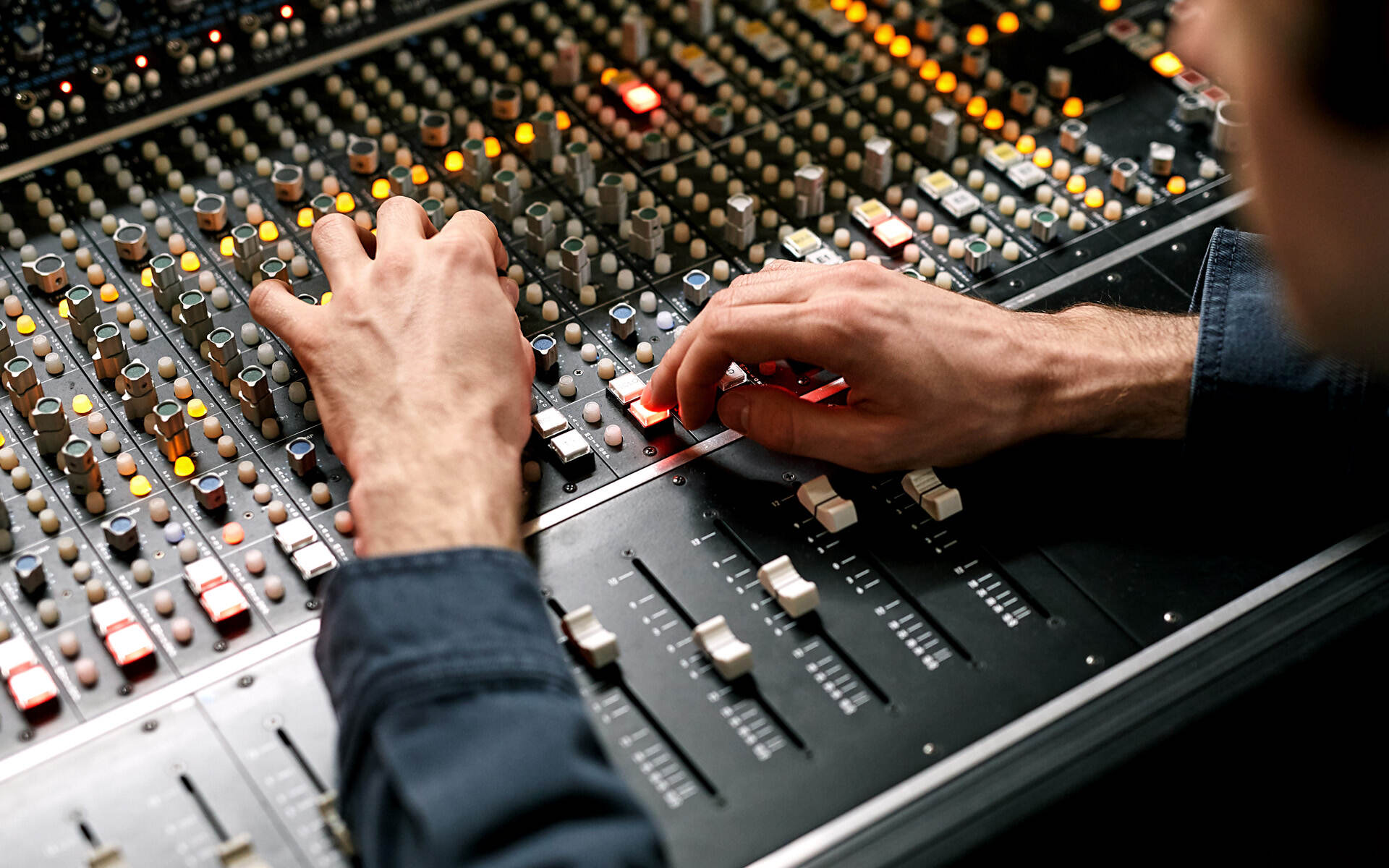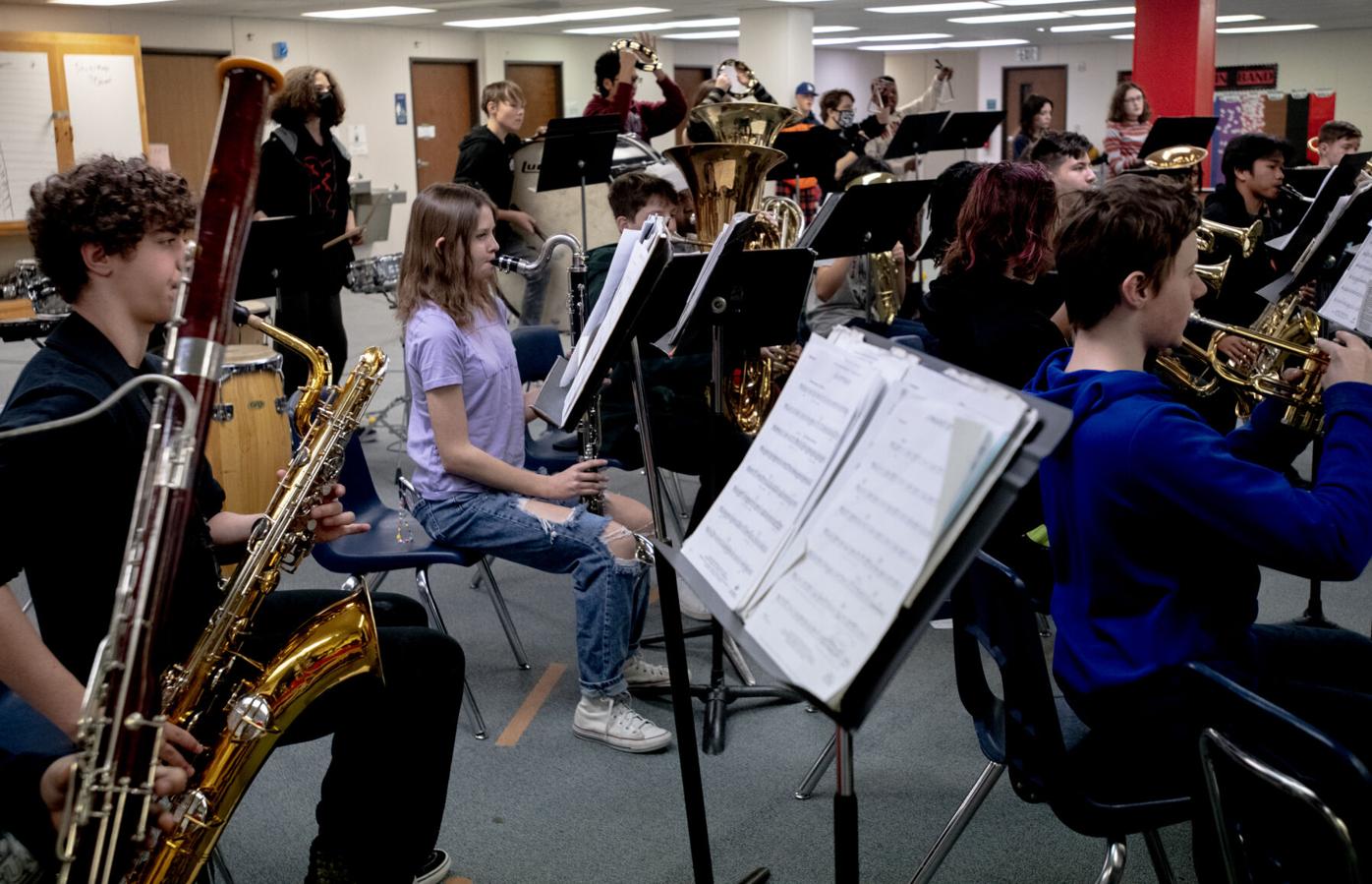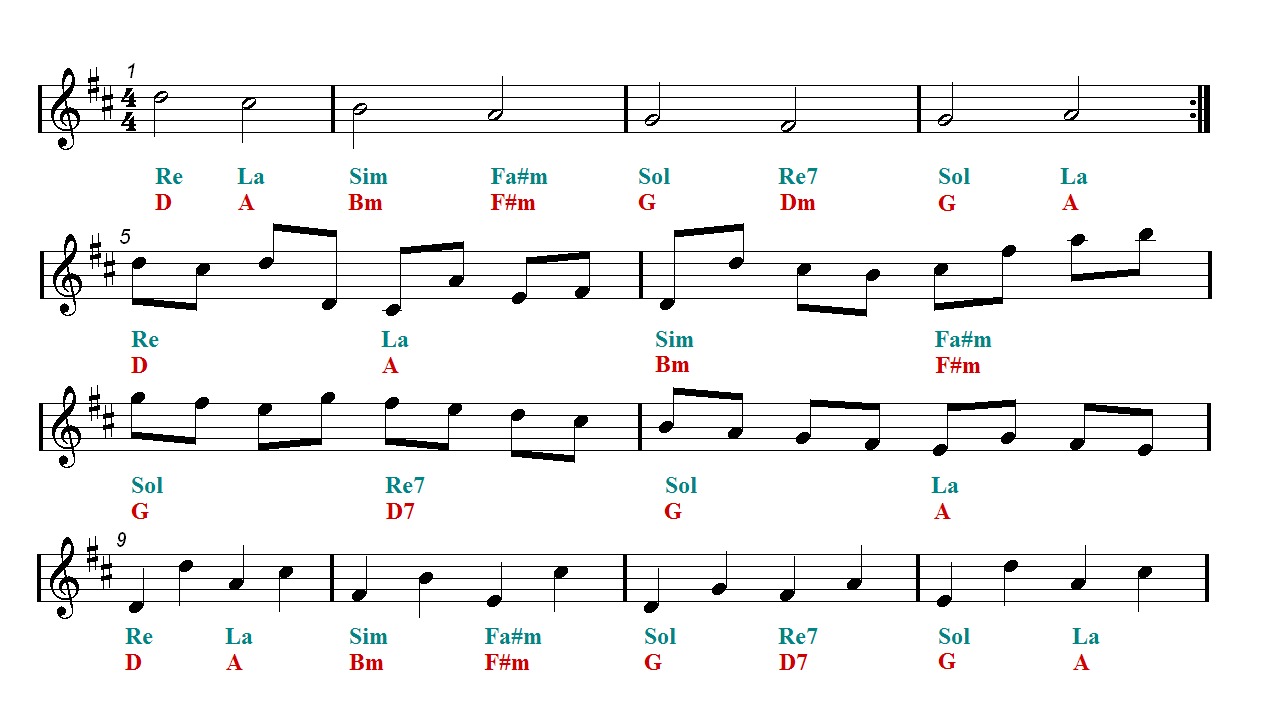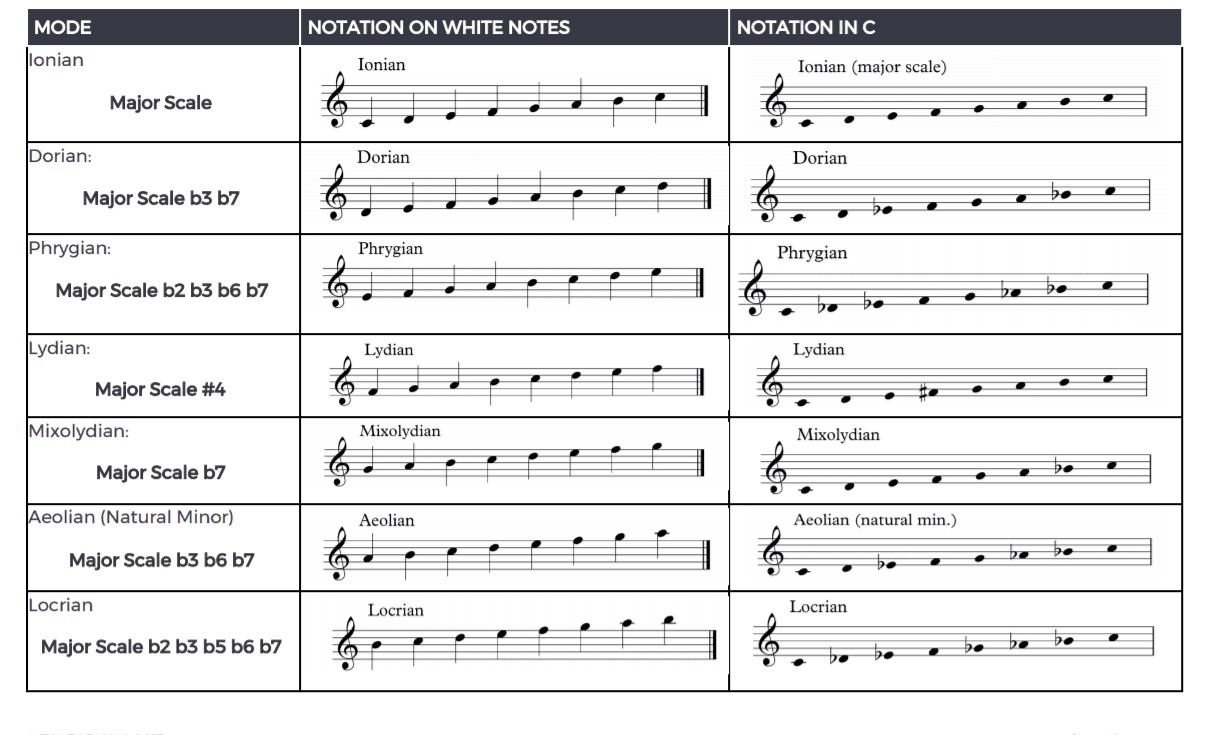Home>Production & Technology>Music Theory>What Jobs Are Available With A Music Theory And Composition Degree


Music Theory
What Jobs Are Available With A Music Theory And Composition Degree
Modified: February 2, 2024
Explore the diverse career opportunities in music theory with a degree in music theory and composition. From teaching to composing, unlock your potential in the world of music.
(Many of the links in this article redirect to a specific reviewed product. Your purchase of these products through affiliate links helps to generate commission for AudioLover.com, at no extra cost. Learn more)
Table of Contents
- Introduction
- Overview of Music Theory and Composition Degree
- Careers in Music Education
- Careers in Music Composition
- Careers in Music Performance
- Careers in Music Production and Sound Engineering
- Careers in Music Therapy
- Careers in Music Journalism and Criticism
- Careers in Music Publishing and Copyright
- Careers in Music Technology and Software Development
- Conclusion
Introduction
Music is a universal language that touches our souls and brings us together. Behind the melodies and harmonies lies the intricate world of music theory and composition. For those with a passion for music and a deep understanding of its inner workings, pursuing a degree in Music Theory and Composition can open doors to a wide range of fascinating and rewarding career opportunities.
A Music Theory and Composition degree provides a comprehensive education in the fundamental principles of music and equips students with the skills to analyze, compose, and arrange music across genres and styles. It offers a perfect blend of theoretical knowledge and practical application, enabling graduates to embark on various exciting career paths within the music industry.
Whether you dream of teaching music to aspiring students, composing beautiful melodies, performing on stage, or working behind the scenes in music production, there is a wide array of job opportunities available to those with a Music Theory and Composition degree.
This article will delve into the diverse range of careers you can pursue with a Music Theory and Composition degree. From music education to composition, performance to sound engineering, music therapy to journalism, publishing to technology development, we will explore the exciting possibilities that await you in the world of music.
Overview of Music Theory and Composition Degree
A Music Theory and Composition degree is designed to provide students with a comprehensive understanding of the fundamental principles and concepts of music theory, composition techniques, and music history. Students in this program learn to analyze and interpret music, develop their own compositions, and gain proficiency in music composition software and techniques.
The curriculum of a Music Theory and Composition degree often includes courses such as music theory, music composition, orchestration, arranging, counterpoint, music history, sight-reading, ear training, and music technology. These courses provide a well-rounded education that combines theoretical knowledge with practical skills.
Throughout the program, students have the opportunity to collaborate with fellow musicians, perform in ensembles, and receive guidance from experienced faculty members. This hands-on approach allows students to apply their knowledge in real-world settings, honing their skills and preparing them for future careers in the music industry.
Additionally, many Music Theory and Composition programs encourage students to explore various genres and styles of music, ensuring they are well-rounded musicians with a broad understanding of different musical traditions. This exposure opens doors to diverse career opportunities and allows graduates to work across a wide range of musical genres.
Graduates of a Music Theory and Composition degree possess a deep understanding of music theory, composition techniques, and music history. They are equipped with the skills to analyze musical structures, write their own music, arrange existing compositions, and engage in critical discussions about music.
Overall, a Music Theory and Composition degree provides a strong foundation for a successful career in the music industry. Whether you aspire to become a music educator, composer, performer, sound engineer, therapist, journalist, publisher, or technology developer, this degree equips you with the necessary knowledge and skills to excel in your chosen path.
Careers in Music Education
One of the most rewarding career paths for individuals with a Music Theory and Composition degree is in music education. With this degree, you can make a profound impact on the lives of aspiring musicians by providing them with the necessary knowledge and guidance to develop their musical skills.
As a music educator, you can work in various settings such as elementary, middle, or high schools, colleges, and universities. You may choose to teach general music classes or specialize in a specific instrument or vocal training. Additionally, you can also provide private music lessons or participate in community music programs.
Music educators have the opportunity to inspire and nurture the next generation of musicians. They teach students the foundational concepts of music theory, sight-reading, ear training, and music history. They also help students develop their technical skills on instruments and provide guidance in vocal technique.
Moreover, music educators often lead ensembles such as choirs, bands, and orchestras, allowing students to develop their performance skills and experience the joy of making music together. They may also organize concerts and recitals to showcase their students’ talents to the broader community.
Beyond teaching, music educators play a crucial role in fostering a love and appreciation for music. They instill discipline, patience, and perseverance in their students, teaching them the value of hard work and dedication. They create a positive and inclusive learning environment where students can express their creativity and explore their musical interests.
Furthermore, music educators can pursue advanced degrees or certifications in music education, enabling them to take on leadership roles as music department chairs, curriculum coordinators, or even college professors. These positions allow educators to shape music education policies, develop innovative curricula, and mentor future music educators.
Overall, a career in music education allows individuals with a Music Theory and Composition degree to combine their passion for music with their desire to make a difference in the lives of others. Whether you choose to teach in schools or privately, you have the opportunity to inspire and nurture the talents of young musicians, leaving a lasting impact on their musical journeys.
Careers in Music Composition
If you have a passion for creating original music and a Music Theory and Composition degree, a career in music composition may be the perfect fit for you. Music composers are the creative minds behind the captivating melodies, harmonies, and arrangements that form the backbone of music in various mediums.
As a music composer, you can work in a wide range of fields, including film, television, video games, commercials, theater, dance, and more. Your compositions can set the mood, enhance emotional impact, and bring the story to life in these different mediums.
One of the main responsibilities of a music composer is to collaborate closely with directors, producers, or choreographers to understand their artistic vision and goals. You will need to compose original music that aligns with their vision, complements the narrative or visual elements, and evokes the desired emotional response from the audience.
Additionally, music composers often work with music publishers, production houses, or agencies to license their compositions for various projects. This allows them to showcase their work to a wider audience and earn income through royalties and licensing fees.
Technology has revolutionized the field of music composition, making it more accessible than ever before. As a composer, you can utilize music composition software, virtual instruments, and digital audio workstations to create and produce high-quality music from the comfort of your own studio.
To excel in a career in music composition, you will need to have a strong understanding of music theory, harmony, orchestration, and arrangement techniques. You should also be proficient in music composition software and technology, as these tools are instrumental in bringing your creative ideas to life.
Many successful composers have their own unique styles and musical signatures, which set them apart and contribute to their recognition in the industry. Building a strong portfolio of compositions and establishing a network of contacts within the music industry can also significantly enhance your career prospects as a composer.
Whether you aspire to create memorable film scores, captivating video game soundtracks, or emotionally impactful compositions for the theater, a career in music composition allows you to channel your creativity and passion for music into producing original works that touch people’s hearts and minds.
Careers in Music Performance
For those with a Music Theory and Composition degree and a love for the stage, a career in music performance offers the opportunity to showcase your musical talents and connect with audiences on a profound level. As a performer, you can bring music to life through your instrumental or vocal abilities, captivating listeners with your expressiveness and skill.
Music performers can pursue a variety of avenues, such as becoming solo artists, ensemble members, or accompanists. You may choose to specialize in a specific instrument, such as piano, violin, guitar, or voice, or perform as part of a larger group, such as a symphony orchestra, chamber ensemble, band, or choir.
As a performer, you can entertain audiences in concert halls, theaters, clubs, festivals, and other live performance venues. You may also have the opportunity to collaborate with other musicians, composers, and artists to create extraordinary musical experiences.
Adapting to different musical genres and styles, musicians can explore a diverse range of performance opportunities. From classical music, jazz, and rock to pop, world music, and beyond, the possibilities are vast. Additionally, you may also have the opportunity to perform in studio recordings, on television, or in film scores.
Successful music performers possess exceptional technical skills, musicality, and stage presence. They must be able to communicate emotions and tell a story through their performance. Dedicated practice, ongoing learning, and performance experience are essential to develop a mastery of your instrument or voice.
Building a career in music performance often requires perseverance, as you navigate auditions, competitions, and networking to establish your reputation within the industry. It is important to collaborate with other musicians, seek feedback from professionals, and continuously strive to improve your craft.
Beyond the stage, music performers also have the opportunity to inspire others through teaching and mentoring. Many musicians balance a career in performance with teaching private lessons, conducting masterclasses, or serving as faculty members in music schools or universities.
Ultimately, a career in music performance allows individuals with a Music Theory and Composition degree to share their passion for music with others, touching hearts and transporting audiences to new emotional heights through the power of their performances.
Careers in Music Production and Sound Engineering
If you have a strong technical aptitude and a keen ear for sound, a career in music production and sound engineering may be the perfect fit for you. Music producers and sound engineers play a vital role in the creation and production of high-quality recordings, ensuring that every note and sound is captured and mixed to perfection.
As a music producer, you will oversee the entire recording process, working closely with musicians, composers, and audio engineers to capture the desired musical vision. You will be responsible for choosing the right equipment, setting up recording sessions, and guiding the creative direction of the project.
Sound engineers, on the other hand, specialize in the technical aspects of recording and mixing music. They use their expertise in sound engineering techniques, microphone placement, signal processing, and mixing to achieve a balanced and immersive audio experience.
In addition to working in recording studios, music producers and sound engineers can also find opportunities in live sound production for concerts, festivals, theater productions, and other live events. They ensure that the sound is clear, balanced, and properly amplified for the audience.
With advancements in technology, music production and sound engineering have become more accessible than ever before. Digital audio workstations (DAWs) and a wide variety of audio plugins allow producers and engineers to manipulate and shape sound in innovative ways.
Many music producers and sound engineers also delve into the world of mixing and mastering, where they take the raw recordings and polish them to achieve a professional and commercially viable sound. They use tools and techniques to balance the levels, EQ the tracks, add effects, and enhance the overall sonic quality.
To excel in this field, it is essential to have a strong understanding of music theory, as well as technical knowledge of recording equipment, acoustics, and signal flow. Having an ear for detail, being able to communicate effectively with artists, and staying up-to-date with the latest advancements in audio technology are also crucial.
Careers in music production and sound engineering offer the opportunity to collaborate with a wide range of musicians and artists, making each project a unique and rewarding experience. By bringing together technical expertise and creative vision, producers and engineers contribute to the creation of memorable and captivating music.
Whether you dream of producing hit records, working in film and television soundtracks, or shaping the sound for live events, a career in music production and sound engineering allows you to leave your mark on the music industry and create soundscapes that resonate with audiences worldwide.
Careers in Music Therapy
If you have a passion for music and a desire to make a positive impact on people’s lives, a career in music therapy may be incredibly fulfilling. Music therapists help individuals of all ages and backgrounds improve their physical, emotional, and cognitive well-being through the power of music.
Music therapy utilizes the therapeutic qualities of music to meet the specific needs of individuals. It is often used to address physical rehabilitation, manage pain and anxiety, enhance communication skills, improve social interaction, and promote emotional expression and self-discovery.
As a music therapist, you will work closely with clients in various settings such as hospitals, rehabilitation centers, mental health facilities, schools, and nursing homes. Your role will be to assess clients’ needs, develop personalized treatment plans, and facilitate therapeutic experiences using music.
During music therapy sessions, you may engage clients in activities such as singing, playing instruments, creating music, improvisation, and guided listening. These activities can help individuals develop their cognitive, motor, emotional, and social skills, while providing them with a creative means of self-expression.
Music therapists often collaborate with healthcare professionals, teachers, psychologists, and other therapists to provide holistic care to their clients. They also maintain detailed records of their sessions and evaluate the progress of clients to ensure the effectiveness of their interventions.
To become a music therapist, it is necessary to obtain a Music Therapy degree from an accredited program. These programs typically include coursework in music therapy techniques, psychology, anatomy, physiology, and music theory. Additionally, hands-on clinical training and supervised internships are an integral part of the education process.
Upon completion of the degree, music therapists can pursue certification through the Certification Board for Music Therapists (CBMT). Certification demonstrates a professional standard and allows music therapists to practice and be recognized within the field.
Careers in music therapy offer the opportunity to make a meaningful difference in people’s lives by using music as a vehicle for healing and personal growth. Each day, you will have the privilege of witnessing the transformative power of music and the positive impact it can have on individuals facing various challenges.
Whether working with children with developmental disabilities, adults recovering from injuries, or seniors with dementia, music therapists bring joy, comfort, and a sense of empowerment to their clients through the universal language of music.
Careers in Music Journalism and Criticism
For individuals with a passion for music and a knack for writing, a career in music journalism and criticism offers an exciting avenue to explore. Music journalists and critics play a crucial role in the industry by sharing their insights, analysis, and opinions on music trends, artists, albums, and live performances.
As a music journalist, you can work in various media outlets such as newspapers, magazines, online publications, and radio stations. You may write articles, reviews, interviews, and features that inform and entertain music enthusiasts. In this role, you have the opportunity to champion up-and-coming artists, shed light on music genres, and delve into the cultural and social impact of music.
Music critics, on the other hand, focus on evaluating and analyzing music in a more subjective manner. They assess the artistic merit, innovation, and quality of musical works, offering their expert opinions to readers and listeners. Music critics can contribute to publications or establish their own platforms to share their perspectives on music.
Both music journalists and critics should have a deep knowledge and understanding of music theory, history, styles, and genres. They must stay up-to-date with the latest music releases, trends, and industry news. The ability to write thoughtfully, concisely, and engagingly is also essential in capturing the attention of readers and conveying their insights effectively.
Expanding beyond traditional forms of media, music journalists and critics can also explore opportunities in podcasting, video content creation, and social media platforms. These platforms allow for more dynamic and interactive discussions about music, fostering a sense of community among music fans.
Careers in music journalism and criticism offer the privilege of experiencing and sharing firsthand the excitement, emotions, and impact of music. Whether attending live concerts, conducting interviews with artists, or dissecting the nuances of a new album, this field allows you to immerse yourself in the world of music.
Furthermore, music journalists and critics have the potential to influence public opinion, shape discussions around music, and create awareness and recognition for deserving artists. By providing insightful analysis, contextual understanding, and well-crafted narratives, they enrich the experience of music enthusiasts and contribute to the ongoing conversation within the music industry.
With the growth of digital media and the accessibility of self-publishing platforms, aspiring music journalists and critics have ample opportunities to showcase their work and build a portfolio. By combining a deep love for music with exceptional writing skills, you can make your mark in the realm of music journalism and criticism.
Careers in Music Publishing and Copyright
In the ever-evolving music industry, ensuring that creators are rewarded for their work and maintaining the integrity of their intellectual property is of utmost importance. Careers in music publishing and copyright specialize in managing the legal and financial aspects of the music business, ensuring that artists and composers receive proper recognition and compensation for their creations.
Music publishers serve as intermediaries between songwriters, composers, and recording artists, and those who wish to use their music for various purposes such as recordings, films, commercials, and television shows. Publishers handle the administrative tasks of licensing, distribution, and collection of royalties for these musical works.
As a music publisher, you will work closely with songwriters and composers to protect their copyright and negotiate deals with other artists, record labels, and production companies who seek to use their music. You will ensure that the appropriate licenses are obtained, and royalties are accurately calculated and distributed.
Moreover, music publishers are responsible for promoting and marketing musical compositions to increase their commercial viability. They actively seek opportunities for synchronization, where music is paired with visual media, such as films or advertisements. This role involves forming connections with music supervisors, filmmakers, and advertising agencies.
Copyright specialists play a crucial role in safeguarding the rights of music creators. They work to ensure that music is appropriately registered, monitor and enforce copyright infringement, and provide legal support and advice in intellectual property matters.
In addition to traditional music publishers, there has been a rise in independent publishing companies, allowing songwriters and composers to retain more control over their music. These companies provide artists with opportunities to collaborate, access resources, and develop their careers in a supportive environment.
Careers in music publishing and copyright require a thorough understanding of copyright law, music licensing, and industry practices. Strong communication and negotiation skills are essential for navigating the complex landscape of music rights and contracts. Additionally, staying informed about the latest advancements in technology and how it impacts copyright issues is crucial.
With the increasing reliance on streaming platforms and digital distribution, the role of music publishers and copyright specialists has evolved. They now face new challenges in ensuring fair compensation in the digital age and staying abreast of emerging licensing models.
Overall, careers in music publishing and copyright allow individuals with a Music Theory and Composition degree to contribute to the preservation and monetization of musical works. By protecting the rights of creators and ensuring that their artistic endeavors are properly managed, publishers and copyright specialists play a vital role in the sustainability and growth of the music industry.
Careers in Music Technology and Software Development
In the digital age, technology has revolutionized the way music is created, recorded, produced, distributed, and enjoyed. Careers in music technology and software development blend the realms of music and technology, allowing individuals to contribute to the innovation and advancement of the music industry.
Music technology specialists and software developers play a critical role in designing, developing, and maintaining the tools and software used by musicians, producers, and audio engineers. They create digital audio workstations (DAWs), plugins, virtual instruments, recording software, and other technological solutions that empower creators to bring their musical visions to life.
Working in music technology and software development requires a strong knowledge of music theory, production techniques, and the technical aspects of audio. It involves staying at the forefront of industry trends and constantly exploring ways to enhance the music creation process through technological advancements.
In addition to creating music production software, music technology professionals also contribute to the development of hardware and musical instruments. They work on improving the functionality, performance, and connectivity of musical equipment, enabling musicians to expand their creative possibilities.
Furthermore, careers in music technology involve collaborating with artists, producers, and engineers to understand their needs and challenges. This collaboration ensures that the software and technology being developed cater to the specific demands of the music industry, empowering creators to push boundaries and unleash their creativity.
With the rapid growth of streaming platforms and digital distribution, music technology professionals are also involved in the development of algorithms and systems for music recommendation, metadata management, and user experience improvement.
Entrepreneurial individuals with a passion for music and technology can also start their own companies or join startups in the music technology sector. This allows them to innovate, disrupt, and shape the future of the music industry by introducing cutting-edge technologies and solutions.
Overall, careers in music technology and software development bridge the gap between music and technology. By combining a deep understanding of music with expertise in software engineering and innovation, individuals in this field have the opportunity to shape the way music is created, produced, and experienced in the digital age.
Conclusion
A degree in Music Theory and Composition opens up a world of diverse and exciting career opportunities within the music industry. Whether you are passionate about sharing your knowledge through education, crafting beautiful melodies as a composer, mesmerizing audiences as a performer, or working behind the scenes in production and sound engineering, there is a career path that aligns with your interests and skills.
Music education allows you to inspire and nurture the talents of aspiring musicians, shaping the future of music. Music composition empowers you to create original works that captivate and move audiences. Music performance allows you to share your musical talents and connect with listeners on a deep level. Music production and sound engineering enable you to shape the sonic landscape and bring music to life. Music therapy utilizes the therapeutic power of music to help individuals heal and grow. Music journalism and criticism allow you to share insights, analysis, and opinions on the music industry. Music publishing and copyright protect the rights of creators and ensure they receive the recognition and compensation they deserve. Music technology and software development drive innovation in the music creation process.
Regardless of the career path you choose, a Music Theory and Composition degree equips you with a strong foundation of knowledge in music theory, composition techniques, and music history. It provides you with the necessary skills to thrive in your chosen field while giving you the freedom to explore different genres and styles of music.
As you embark on your journey, remember that the music industry is ever-evolving. Embrace technological advancements, stay current with industry trends, and continuously develop your skills and expertise. Collaboration and networking are essential in this field, as they foster growth and open doors to new opportunities.
No matter which career path you pursue with a Music Theory and Composition degree, the common thread is a deep passion for music. Music has the power to transcend boundaries, evoke emotions, and bring people together. As a music professional, you have the privilege of enriching people’s lives through the universal language of music.
So, follow your passion, hone your skills, and embark on a fulfilling journey in the world of music. Whether you aspire to educate, create, perform, produce, heal, critique, protect, or innovate, your Music Theory and Composition degree will be the foundation upon which you build a successful and meaningful career in the vibrant and ever-enticing realm of music.











